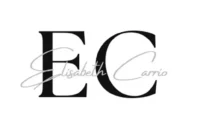Things are moving, and I just attended a conference in Montpellier on the theme of 'Spirituality and Management,' a rather exceptional event in France that deserves to be celebrated. (This conference was held in 2019.)
The search for spiritual intelligence began about twenty years ago, notably with the work of Zohar. The spiritual approach was subsequently explored in the fields of management and leadership, as well as in psychology, with the notion of multiple intelligences.
The fundamentals
The fundamentals are simple, and I'll sum them up for you starting from the premise that everything is interconnected, that the world is complex (it always has been, but we're only just beginning to understand it through environmental crises) and that the quest for meaning is inherent in human nature, the so-called "learning company" asks itself the question, not of what its direct customers want, but of society in general in a given space-time. The question of "For whom" (we produce) has been replaced by the question of "For what" (to what need does my company respond). The company must therefore be flexible to adapt to constant societal change. And since several brains are better than one, it calls on the collective intelligence of its internal partners (employees, etc.) and external partners (subcontractors, consultants, etc.) in a win-win situation. It also resorts to intuition (or generative listening). This way of proceeding is based on what is called in psychology spiritual intelligence.
The principle is simple, you might say, and it works (see, for example, the example of Airbnb, which has revisited the notion of offering accommodation). So why has spirituality remained a taboo subject in France until now, depriving leaders and managers of innovative management techniques for want of knowing they exist? In my opinion, because we're faced with a paradox: spirituality has historically been the preserve of religions; given their excesses and political instrumentalization, secularism was elevated to the level of dogma in France, and the word 'spirituality' banished. During the colloquium, this paradox resurfaced with :
Spiritual intelligence, a concept difficult to define
- The difficulty of defining the word spirituality, which was often confused with compassion, forgetting rigor and intuition (transcendence), the other two pillars of spirituality;
- The intervention of speakers who talk about their religion and have difficulty freeing themselves from their own beliefs. Yet stepping back from these beliefs as representations of the world is one of the hallmarks of spiritual intelligence, as evoked by existentialists in philosophy and phenomenologists in psychology;
- Confusion between the search for well-being in the workplace and the search for meaning or spirituality; while the two may converge, they are really two different approaches; indeed, we might question the notion of making workplaces places of well-being.
But things are moving, and even if the subject is new and needs to be worked on, the door is open as far as universities are concerned.
High-quality workshops were held during the symposium, covering values (including the Schwartz model I mentioned on my blog), personality typology (self-knowledge and identification of one's role in society according to one's personality), consciousness and spiritual intelligence, archetypes (work by Jung or Campbell), societal evolution ('Spiral Dynamics' by Graves) and innovative approaches based on ancient traditions and.... applied to industrial processes.
To be continued....



